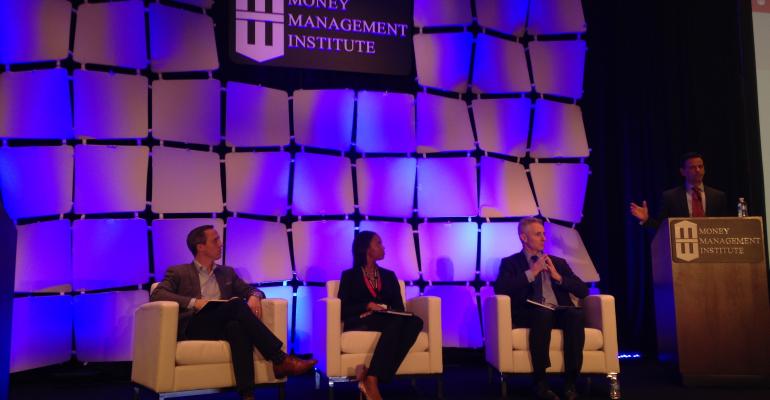What advisors need to do to navigate the fast-changing financial services landscape was the topic of the Money Management Institute’s conference this week in Washington, D.C.
Ron Fiske, the managing director of Envestnet and co-chair of the conference, noted the many obstacles advisors are facing, namely new regulations, global tensions, market uncertainties, technology, the current political climate, generational differences and increased marketplace competition.
“Some winds are crosswinds, some are headwinds, but we have to learn to make progress,” Fiske said.
Bob Doll, the senior portfolio manager and chief equity strategist at Nuveen Asset Management known for his annual investment predictions, gave an updated economic and investment outlook in the opening keynote.
Doll said his year-end target for the S&P 500 is 2150 and added that U.S. stocks should have an even higher yield than U.S. treasuries. However, he thinks we will enter a bear market soon, calling the bull market “old, wrinkled” but “not yet dead.”
@BobDollNuveen #mmi2016ac Bob Doll talking about economy. pic.twitter.com/5TRUuD10TF
— Hilary Fiorella (@Hfiorella) April 20, 2016
As a result, he recommended advisors increase allocations in equities and cash by 5 percent each, while decreasing assets held in bonds by 10 percent.
Doll also commented on the federal deficit and anticipated interest rate changes by the Federal Reserve, and said advisors should communicate to clients that they won’t be a major influence on portfolios. And as far the election goes, Doll said the most important issue facing the markets, by far, is corporate tax reform.
“Whether it’s a donkey or elephant or some other animal in the White House, please, please, please let them tackle corporate tax reform,” Doll said, but doubted any change would happen given how separated the two parties are on how to do it.
The conference also included a panel on the increasing importance of home office research teams for broker/dealers, and John Taft, the CEO of RBC Wealth Management, discussed regulation, especially the new fiduciary rule from the Department of Labor, and said his firm is developing a coordinated approach to adapt to it.





